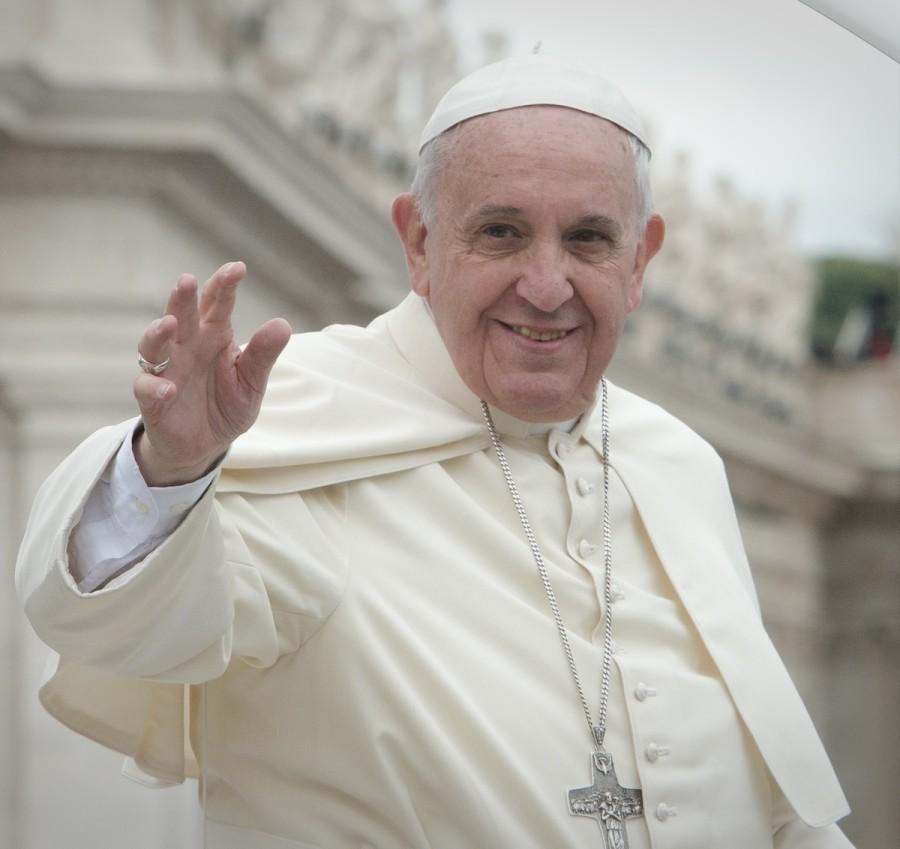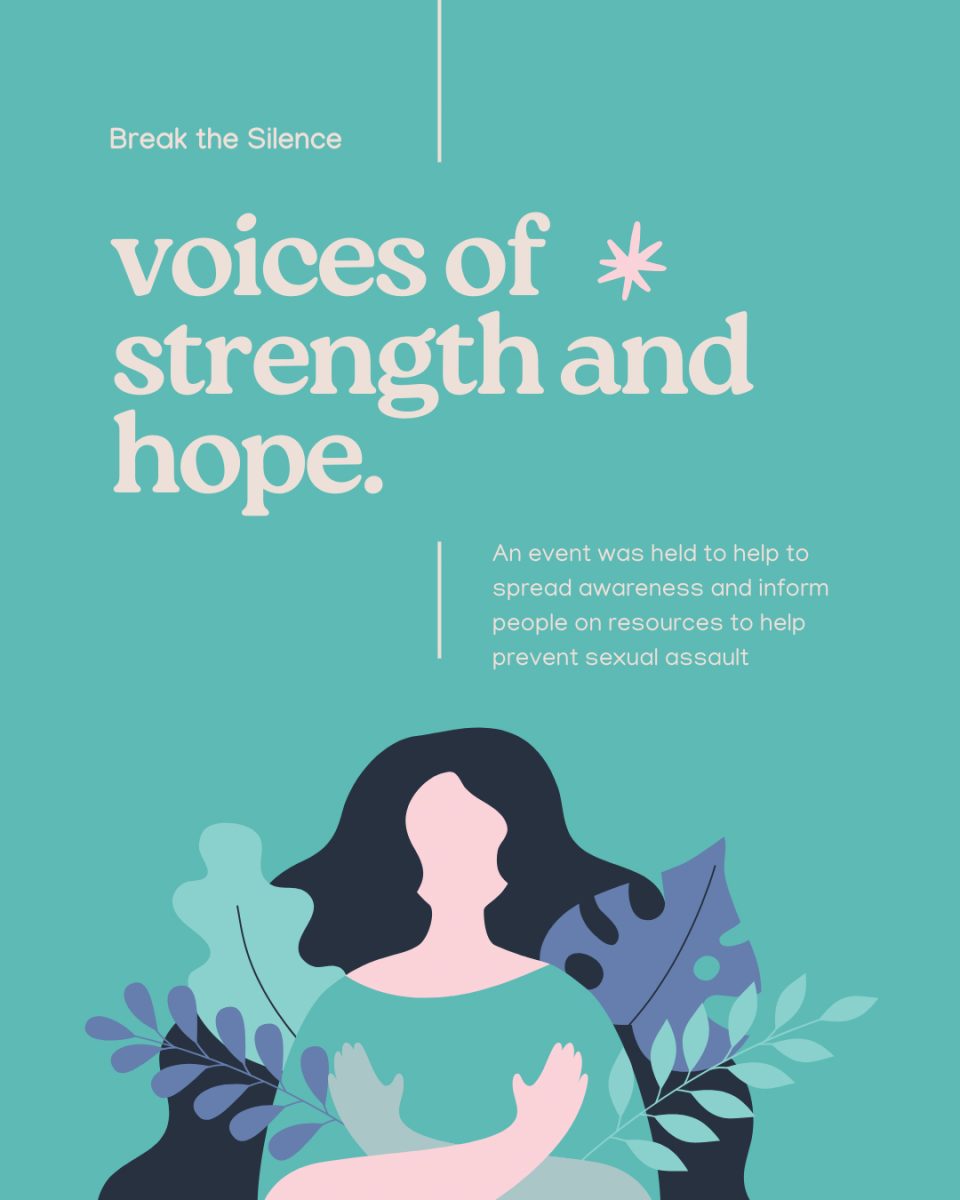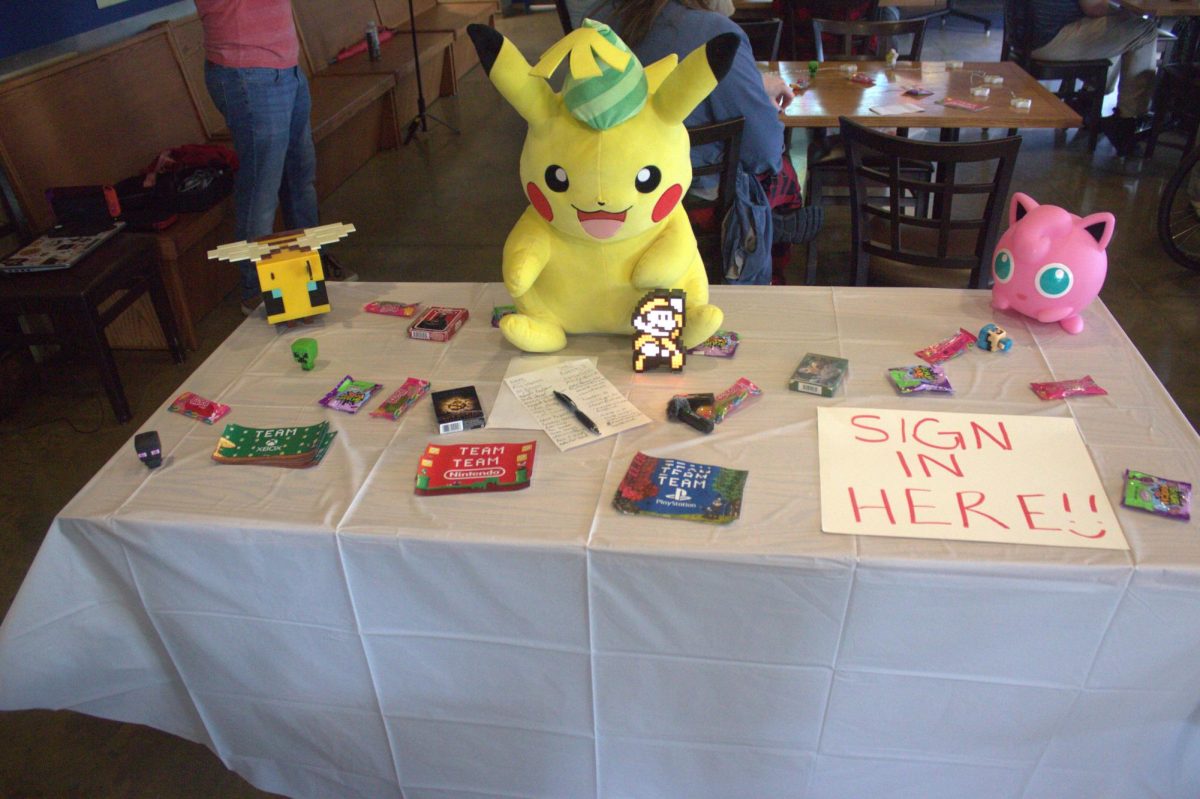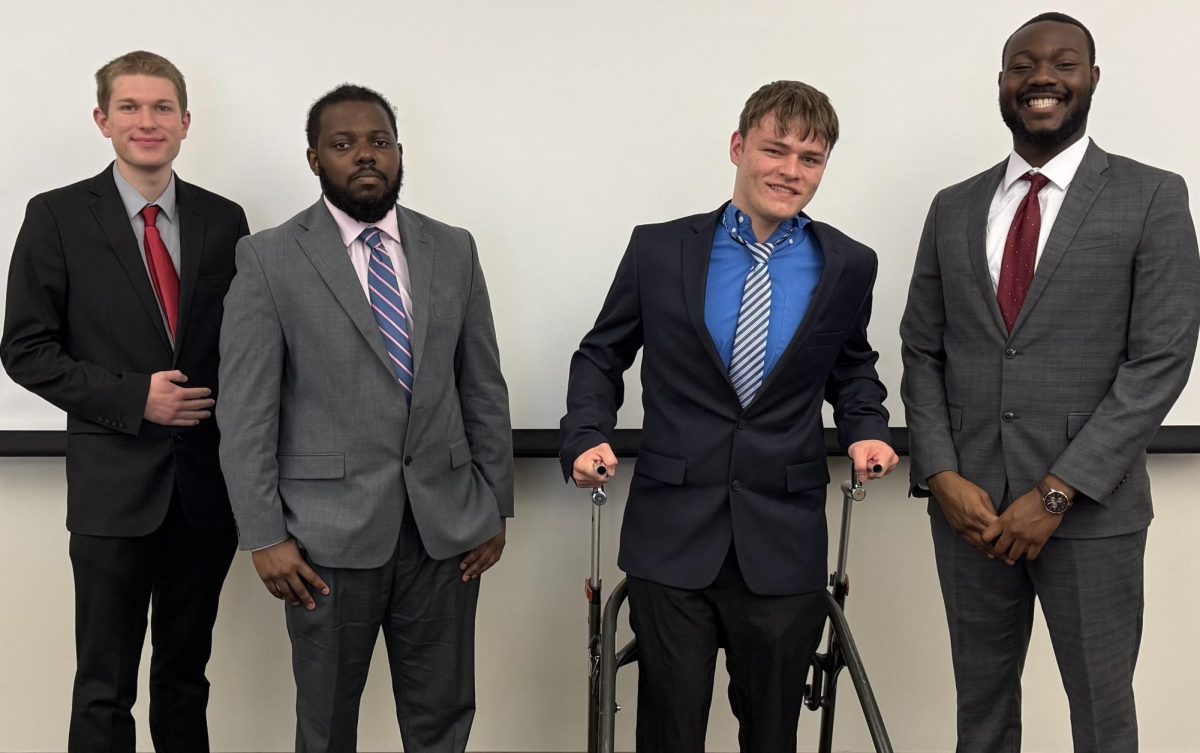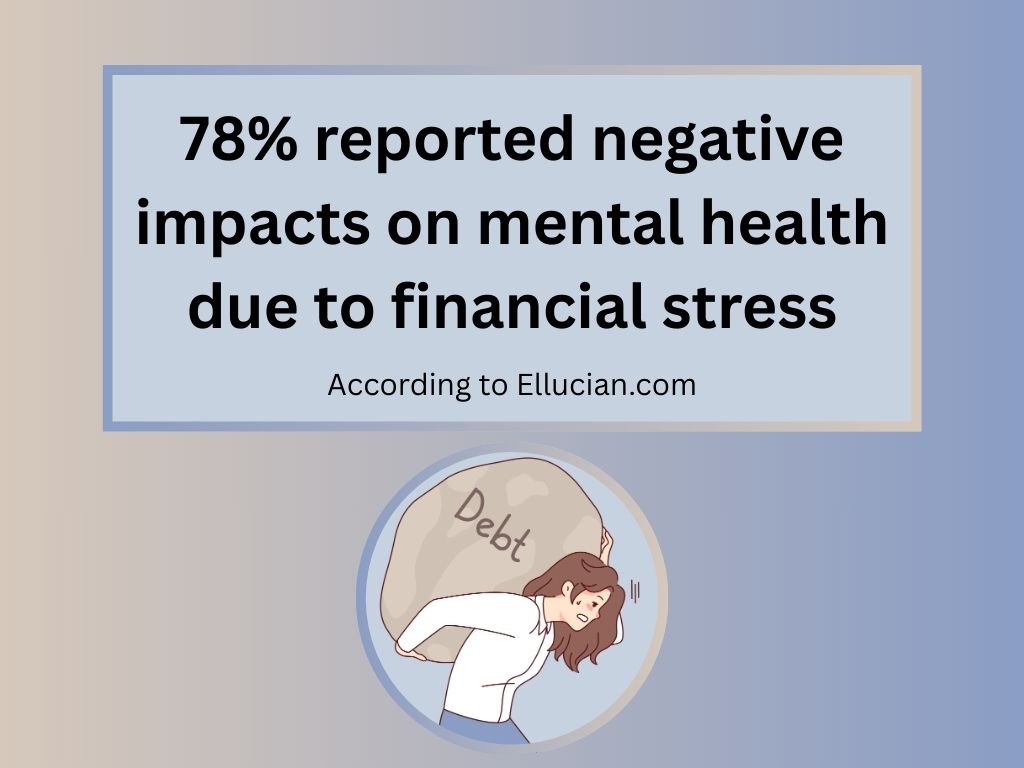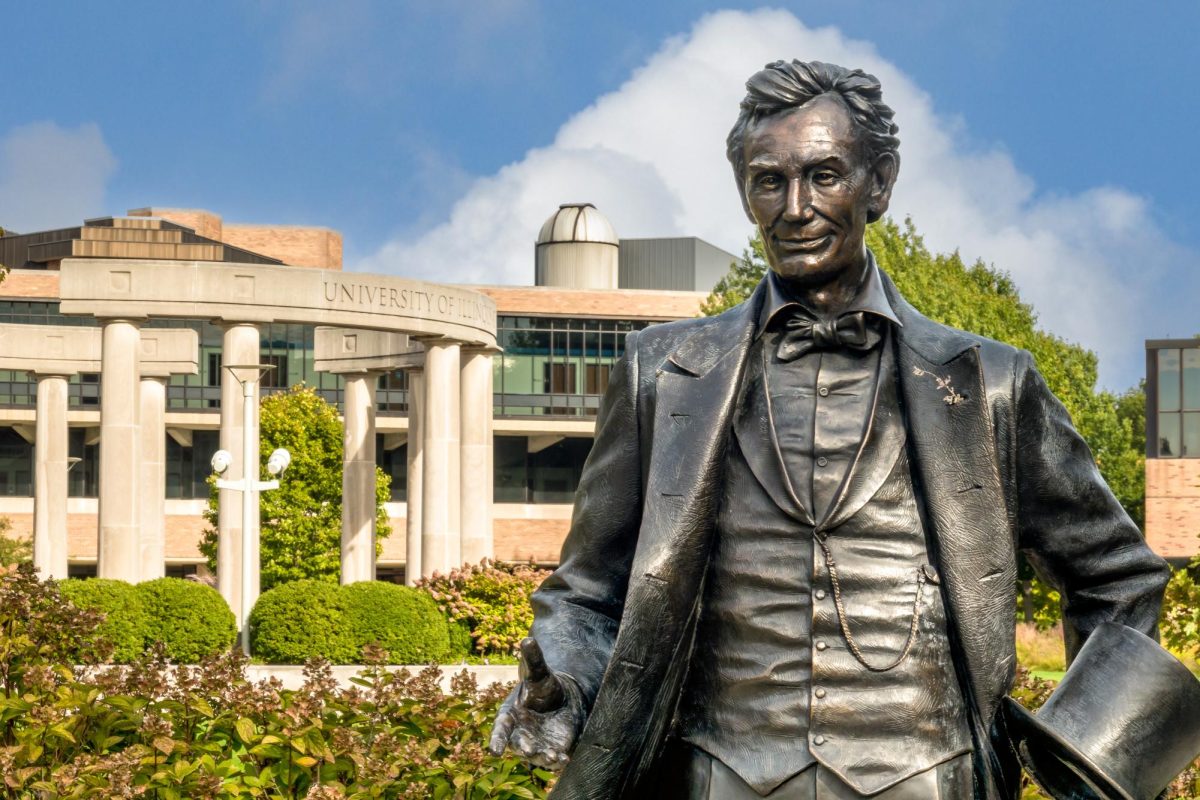Pope Visits United States
September 30, 2015
On Sept. 22 Pope Francis landed at Joint Base Andrews in Maryland, on Sept. 27 he departed for Rome, and in between the leader of the Catholic Church visited Washington, New York City, and Philadelphia.
While in DC, Francis addressed a joint session of Congress, spoke at the White House, and blessed food for the homeless at St. Patrick’s Catholic Church.
During the Pope’s time in New York City, he addressed the UN General Assembly, led a procession through Central Park, and held a mass at Madison Square Garden.
Throughout the Pope’s Philadelphia trip, he visited Independence Mall, an area bordering where the Declaration of Independence and Constitution were signed, and Curran-Fromhold Correctional Facility.
The Vatican’s official website states that Pope Francis was born with the name of Jorge Mario Bergoglio in Buenos Aires, Argentina on Dec., 17, 1936. Francis is the first papal figure to come from the Americas.
Francis began his religious profession in December of 1969 when he was ordained as a priest.
Throughout his life, Francis has been known to be a man of the people. During his time as pope, he has uniquely lived his life in a simple way.
For example, Francis cooks his own dinners and declined to live in the typical papal living quarters, instead opting for a smaller Vatican apartment normally dedicated to visiting priests and laypersons.
“My people are poor and I am one of them,” Pope Francis stated as he explained his decision to live in a simple manner.
“I believe Pope Francis is one of the most humble people in the world today who loves and respects all people regardless of age, socioeconomic status, and background,” Alexandra Madden, a junior at UIS, said.
Francis has used his platform to address a wide array of issues, including topics of both social and political origin.
“I am ecstatic that Pope Francis has made his first trip to the United States, however I am wary of his involvement in politics,” Madden said. “I believe Pope Francis’s duty is first and foremost to God and his people and I am concerned that his involvement in political affairs will take away from his service to the Church.”
However, Patrick Simon, a junior political science major and practicing Catholic at UIS, does not see a problem with Pope Francis’s role in the political sphere.
“The Pope himself is a political leader,” Simon said. “He is the leader of the Catholic Church who helps to lead 1.2 billion people, and he definitely needs to be involved in the political sphere because our world is not only affected by politics but it is also affected by people’s faith.”
One notable issue Pope Francis has addressed is homosexuality. While Catholicism has traditionally been opposed to the idea of homosexuality, Francis has brought with him a new sense of tolerance and compassion.
For example, Francis famously said, “If someone is gay and searches for the Lord and has good will, who am I to judge?”
Furthermore, in an interview with Time Magazine, Francis indicated the Catholic Church could be open to same-sex civil unions.
“As a fellow Catholic, I am glad that Pope Francis has remained true to the doctrine taught by the Roman Catholic Church but does not alienate or judge those that the church has persecuted in the past because that is not what we are called to do,” Madden said.
She added, “Pope Francis urges fellow Christians to stick to their beliefs, yes, but to also perpetuate the love and compassion required of all people, regardless of spiritual or moral beliefs.”
Another political issue Pope Francis has addressed is climate change. The pope gained the support of many Democrats in Congress by addressing the issue in his address to Congress on Sept. 24.
Pope Francis also addressed the climate change issue earlier in June in a papal document entitled “Laudato Si.”
“Climate change is a global problem with grave implications: environmental, social, economic, political, and for the distribution of goods,” he wrote. “It represents one of the principal challenges facing humanity in our day.”
A third prominent topic addressed by Pope Francis is abortion. While Francis still speaks in strong opposition to abortion, he has expressed the desire for more tolerance toward those who have undergone the procedure.
In an interview with CNN, Francis said he has met women who have been scarred by what he called the “agonizing and painful” decision to choose an abortion. “The forgiveness of God cannot be denied to one who has repented,” Francis told CNN.
Francis has also spoke on the death penalty. Pope Francis also discussed the topic with U.S. lawmakers during his address to Congress, as he came out against the use of the death penalty in the U.S.
“I am convinced that this way is the best, since every life is sacred, every human person is endowed with an inalienable dignity, and society can only benefit from the rehabilitation of those convicted of crimes,” Francis said.
According to the United States Conference of Catholic Bishops, Francis is the fourth to visit the United States and only the third pope to meet with a U.S. president during such a visit.
In 2008, Pope Benedict XVI was the last pope to visit the United States. Similar to Pope Francis, his trip took him to New York City and Washington. Pope Paul VI was the first pope to visit the United States in October of 1965.



